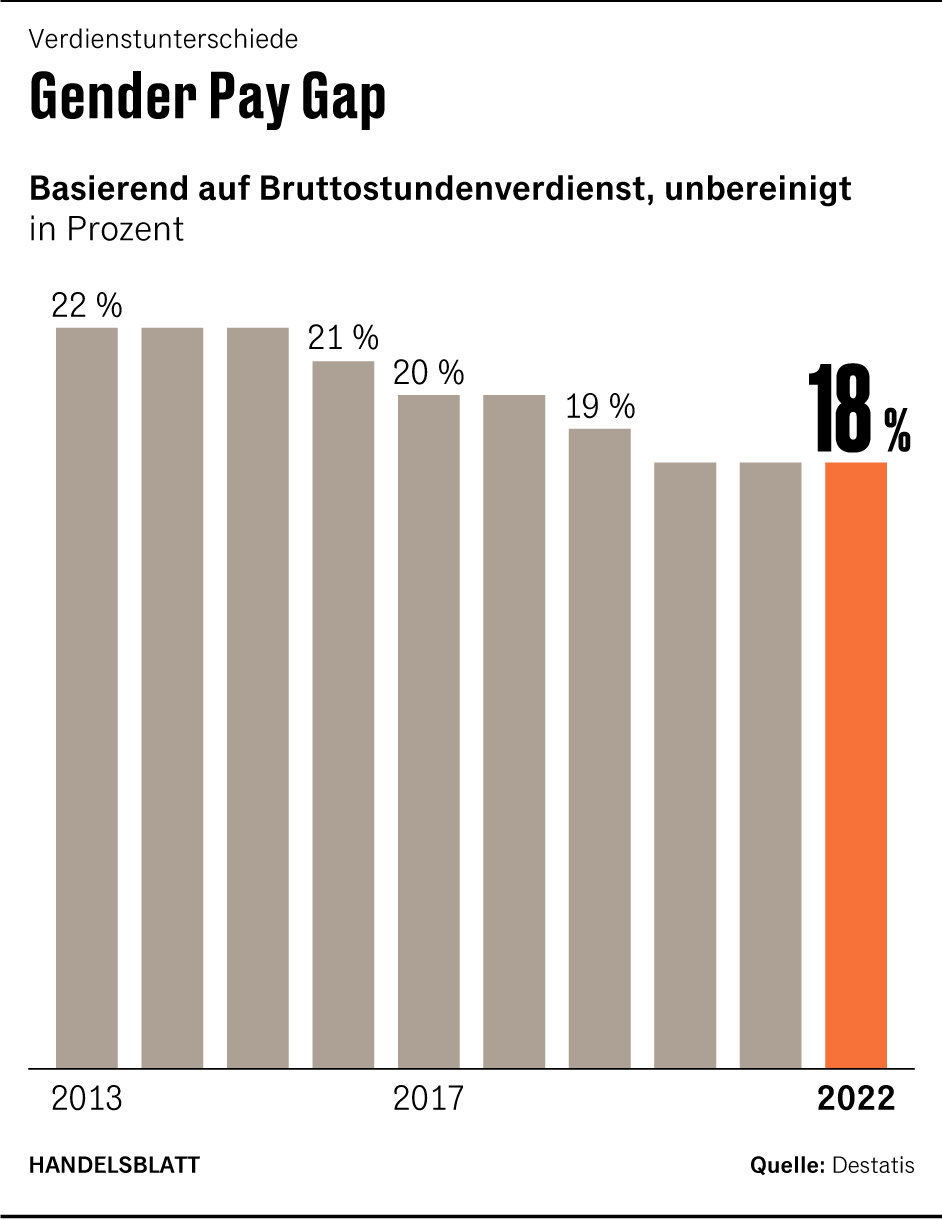Dusseldorf Facts like these are still voluntary: the sporting goods manufacturer Puma has developed a strategy to guarantee fair pay for women in its own company. The company is thus anticipating future EU law. A precise classification is made for each new employee at Puma, and there are strict rules for salary increases and bonuses – so that women who do the same job as men are not disadvantaged.
Nevertheless, the voluntary salary analysis by the Fair Pay Innovation Lab (FPI) shows a wage gap of 24 percent to the disadvantage of female employees at the sporting goods manufacturer. “If the average earnings of all employees are generally compared with one another, the impression arises that men earn more here,” says Puma HR Manager Dietmar Knoess. However, this is a fallacy, as the “adjusted” gender pay gap shows.
The “adjusted” gender pay gap measures the difference in earnings between men and women with comparable jobs, qualifications and experience. It is important that this adjusted gender pay gap approaches zero when comparing salaries. “Our adjusted gender pay gap in Germany is less than one percent,” says Knoess.
But how can the discovered wage gap be explained?
The main reason becomes apparent after even more in-depth FPI analyses: it is that there are currently significantly more men than women, especially at one hierarchical level: the comparatively highly paid divisional manager level, unlike the Puma board, for example, is not yet half male and female occupied. Resolving this as quickly as possible is now the goal of personnel manager Knoess.
EU directive provides for penalties for companies that discriminate against employees in terms of salary
According to the EU, all companies with more than 100 employees should in future look at their fair remuneration in as much detail as the German company Puma. And how targeted improvements must be made if there is an adjusted wage gap of more than five percent in a job category that cannot be explained by performance, professional experience or managerial responsibility.
The EU Commission has now received the green light from the EU Parliament for this new directive. Unlike the German Pay Transparency Act, the EU directive will reverse the burden of proof and penalize companies that discriminate against employees in terms of salary. In addition, disadvantaged people should even be entitled to compensation.
In order to avoid such drastic consequences, companies such as Puma, but also the car manufacturer BMW and the insurer Allianz are already actively working on how they can eradicate unfair wages and salaries.
According to the latest surveys by the Federal Statistical Office, the unadjusted gender pay gap in Germany is 18 percent. Even “adjusted” for the fact that women more often work part-time and poorly paid jobs, there is still six percent less earnings. Working women will demonstrate nationwide on Equal Pay Day on Tuesday against this gender-specific discrimination.
Experts like Florian Frank, Head of Work & Rewards at the Willis Towers Watson compensation consultancy, assume that the new directive will pass the EU Parliament at the end of the first quarter. From then on, Germany has three years to transpose them into national law.
“Employers should by no means rest on their laurels,” says consultant Frank. “Three years is not much time to track down salary discrimination and counteract it with a suitable mix of measures.” Especially not when companies employ very few or possibly no women at the top management and salary levels.
Puma, on the other hand, has done a lot in recent years to eliminate the former male dominance that still characterizes the unadjusted gender pay gap today. 44 percent of all executives are already female. A big step towards equal pay.
“Puma is on the right track,” confirms FPI boss Henrike von Platen. The external testing authority now certifies that the sporting goods manufacturer has risen from “Fair Pay Analyst” to “Fair Pay Developer” status. With targeted succession planning for women at division manager level, Puma sees itself armed for the upcoming EU directive.
Read more on the topic:
So far, however, only around ten companies have undertaken the FPI remuneration analysis procedure. In addition to Puma and BMW, a few medium-sized companies want to know exactly.
Talents expect transparency when it comes to compensation
The starting point of the strict FPI certification process “Universal Fair Pay Check” is an Icelandic analysis software that meets the high legal transparency requirements of the Scandinavians, but also Great Britain, Spain and Switzerland. In these countries, employers have to prove fair pay on a regular basis – otherwise they face fines.
A circumstance that German companies are better prepared for – and not just for purely legislative reasons. Compensation consultant Florian Frank says: “Anyone who wants to attract the rare talents on the job market must live up to their expectations of fair payment and transparency.”
BMW HR director Ilka Horstmeier also knows how complex and time-consuming it is to establish a fair remuneration system. More than 40 employees at the Munich headquarters are just busy sorting new colleagues who do jobs covered by collective bargaining agreements or employees who hold non-tariff positions into the salary structure of the 80,000 employees in Germany.
The Munich-based automobile manufacturer was the first German company to achieve the highest rank in the three-stage FPI certification from the non-profit Berlin institution. For Horstmeier, this certification as “Fair Pay Leader” is “the result of very consistent action over the past few years”.
Developing future female leaders takes time and ideas
Paying employees fairly, from production to the board of directors, is not only a matter of course, but also an expression of the corporate culture in which equal opportunities for career development for men and women count. HR manager Horstmeier’s strategy focuses on this.
Employers typically lose female talent in two places: younger women when they are asked to take on leadership responsibilities for the first time. And later, when it’s supposed to go from middle to upper management. Horstmeier: “You have to support female candidates, offer them individual solutions and sometimes encourage them to take the next step, otherwise they jump off.”
For example, three years ago, the Head of Human Resources introduced the “Joint Leadership” program in order to specifically recruit women for higher management positions. Around 100 managers now share a management position – from team to department management. This option is mainly used by women.
Thanks to the individually negotiated part-time model, these employees remain in the talent pool of the Bavarian car manufacturer and can take a career leap when they work full-time again. With such flexible offers, Horstmeier was able to significantly increase the proportion of women in management positions across all hierarchical levels.
More: Dax companies: These 16 board members are working on the future of the German economy


